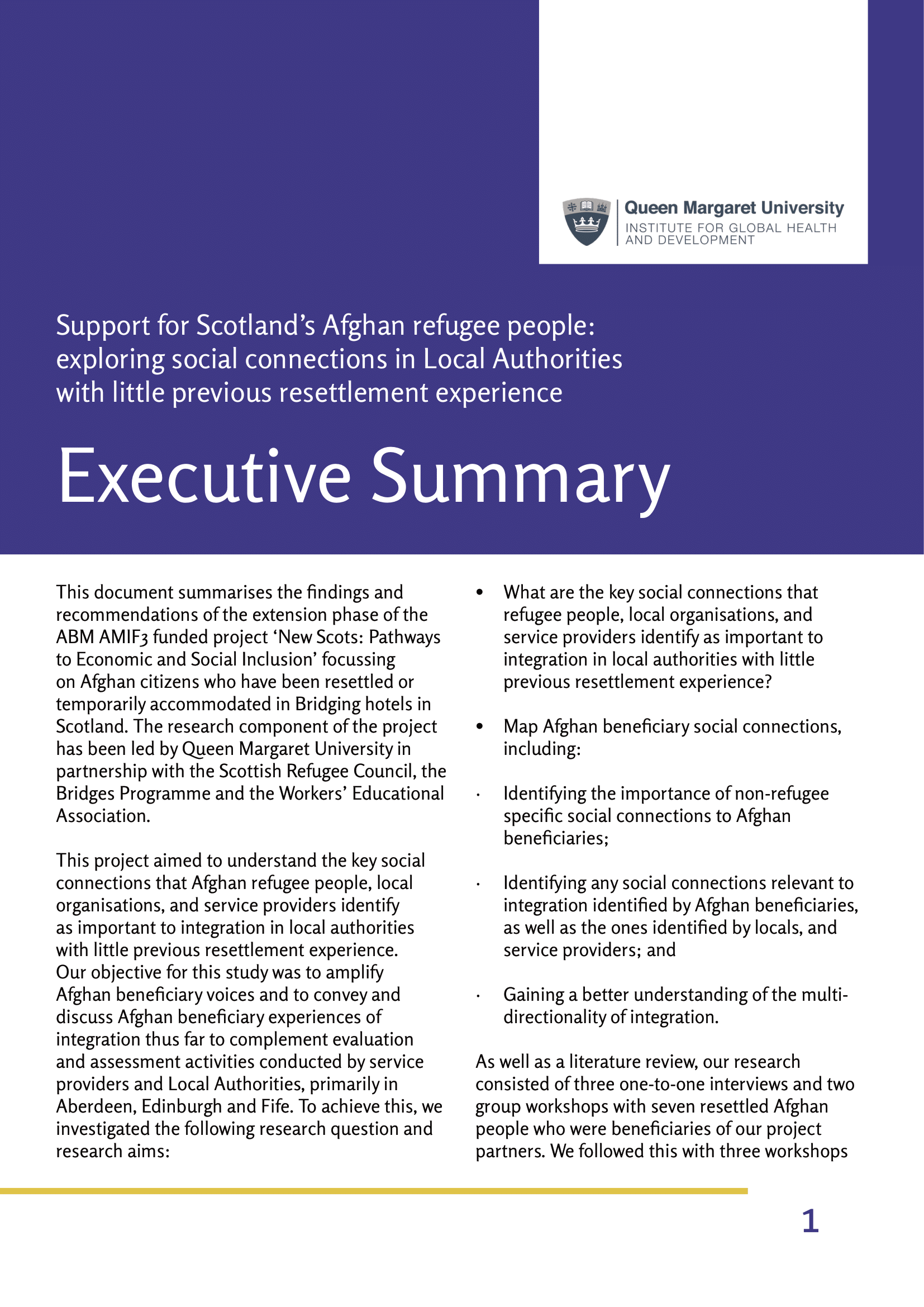Exploring Social Connections in Remote Local Authorities
with Little Previous Resettlement Experience
Team: Marcia Vera-Espinoza (Principal Investigator), Nicole Vidal, Gianluca Palombo and Marcus Fernandes
All 32 Scottish Local Authorities (LA) have signed up for the Afghan National Resettlement Scheme in the UK, with 16 LAs already resettling Afghan refugees. While integration services in LAs with previous resettlement experience, such as Glasgow, already draw heavily upon the social connections approach to integration, there is scope to develop and build social connections capacity in LAs with little previous resettlement experience.
The social connections approach to integration focuses on the assessment and provision of bonding (i.e. close and trusting), bridging (i.e. providing new information) and linking (i.e. interfacing with the state and public services) relationships to beneficiaries to conduce processes of integration (see Ager and Strang 2008; Ndofor-Tah et al. 2019; Strang and Ager 2010; Strang and Quinn 2019; Strang et al. 2015; 2016; 2017; 2018; see also Szreter and Woolcock 2004).
In relatively remote LAs, or LAs with little previous resettlement experience, there is scope to improve the provision of integration services through a closer understanding of social connections needs and building social connections capacity across beneficiaries, locals, and service providers. Within this context, LAs have identified the need to build social connections capacity to support newly arriving families both in LAs themselves and in the areas in which Afghan refugee already reside. There is therefore a clear social connections gap in the provision of integration services in LAs with little previous resettlement experience that our proposal aims to address by engaging holistically with the communities themselves, including refugees, locals, and service providers in the relevant LAs through qualitative research.
Specific objectives include:
Mapping Afghan Cohort social connections to identify the importance of refugee and non-refugee specific social connections relevant to integration identified by Afghan beneficiaries, as well as the ones identified by locals, and service providers.
Amplify beneficiary voices.
Identify, explore and gain a better understanding of the multi-directionality of integration.
Convey and discuss Afghan beneficiary cohort experiences of integration so far to complement evaluation and assessment activities conducted by service providers and LAs.
So we are asking…
What are the key social connections
that refugees, locals, and service providers identify as important to integration in local authorities
with little previous resettlement experience?
Reports
Click the reports to read
Click here or on the
Research Report 2022 to read






